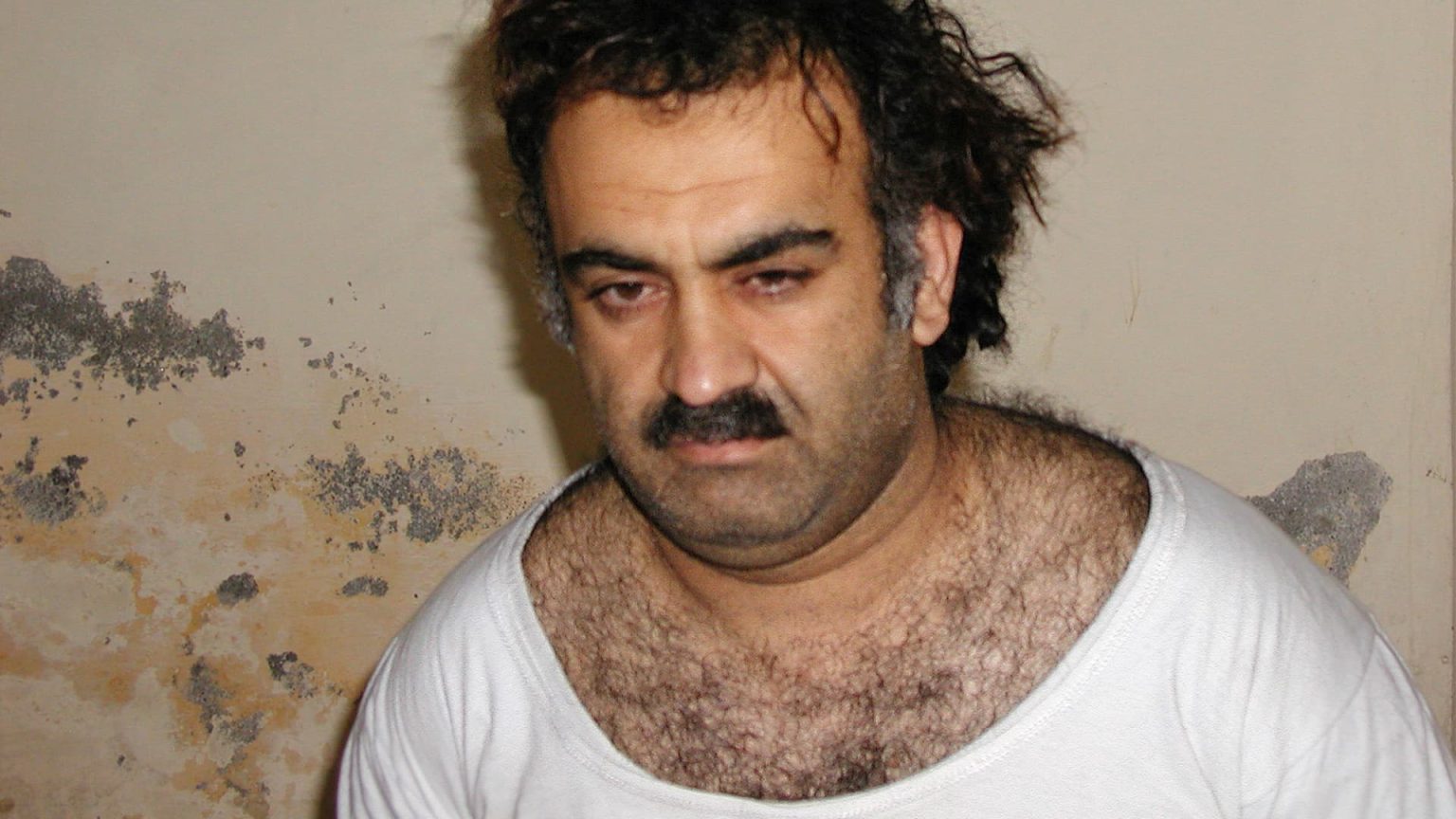Accused 9/11 mastermind Khalid Sheikh Mohammad and two other men charged with plotting the Sept. 11, 2001, terror attacks by al-Qaeda have agreed to plead guilty in the military commissions process, the Pentagon announced. The specific terms of the plea deals for the three men, who have been in custody since 2003, were not disclosed, but it is expected that they will plead guilty to some charges in exchange for potentially avoiding death sentences. The Office of Military Commission stated that the defendants will enter their pleas as early as next week at the U.S. military base in Guantanamo Bay, Cuba. Alongside Mohammad, the other men expected to plead guilty are Walid Muhammad Salih Mubarak Bin ‘Attash and Mustafa Ahmed Adam al Hawsawi.
According to The New York Times, Rear Admiral Aaron Rugh, the chief prosecutor in the case, wrote in a letter to 9/11 victim family members that, “In exchange for the removal of the death penalty as a possible punishment, these three accused have agreed to plead guilty to all of the charged offenses, including the murder of the 2,976 people listed in the charge sheet.” The prosecution against the individuals, as well as other defendants held at Guantanamo Bay, has spanned more than 16 years. The prolonged legal proceedings have been primarily due to disputes over the admissibility of evidence obtained from the accused while they were subjected to torture at CIA detention sites.
The tragic events of September 11, 2001, resulted in the deaths of nearly 3,000 individuals as four teams of terrorists hijacked airliners in the United States. Two planes were flown into the Twin Towers of the World Trade Center in New York City, while another plane was crashed into the Pentagon. The fourth hijacked plane went down in a field near Shanksville, Pennsylvania, after courageous passengers attempted to gain control of the aircraft cockpit. This landmark event continues to be remembered as one of the deadliest and most devastating terrorist attacks in modern history, with long-lasting repercussions for national security and global perspectives on terrorism.
The decision of Khalid Sheikh Mohammad and his co-defendants to plead guilty to their charges marks a significant development in the ongoing legal proceedings. By agreeing to some form of guilty plea, the defendants may be able to mitigate the severity of potential sentences and potentially avoid facing the death penalty. The resolution of this high-profile case through plea agreements could result in closure for the families of the victims of 9/11, as well as provide a sense of accountability for those responsible for the heinous act of terrorism. The upcoming plea hearings at Guantanamo Bay will likely draw significant attention and serve as a critical moment in the pursuit of justice for the devastating attacks that reshaped the global landscape.
The long process of legal proceedings and disputes over evidence admissibility underscores the complexities of prosecuting high-profile terrorism cases within the military commission system. The challenges of handling cases involving allegations of torture and human rights violations further complicate the pursuit of justice in these sensitive matters. The resolution of the 9/11 case through plea deals may offer an expedient path toward concluding a prolonged chapter in the post-9/11 legal landscape, while also raising questions about the effectiveness and legitimacy of the military commissions system in addressing complex terrorism cases. The plea agreements reached by the accused individuals could lead to a significant shift in the legal dynamics surrounding terrorism prosecutions and may have broader implications for future cases involving similar circumstances. As this breaking news story continues to unfold, further updates and insights are expected to shed light on the implications and outcomes of these plea agreements for the pursuit of justice in the aftermath of the 9/11 attacks.













